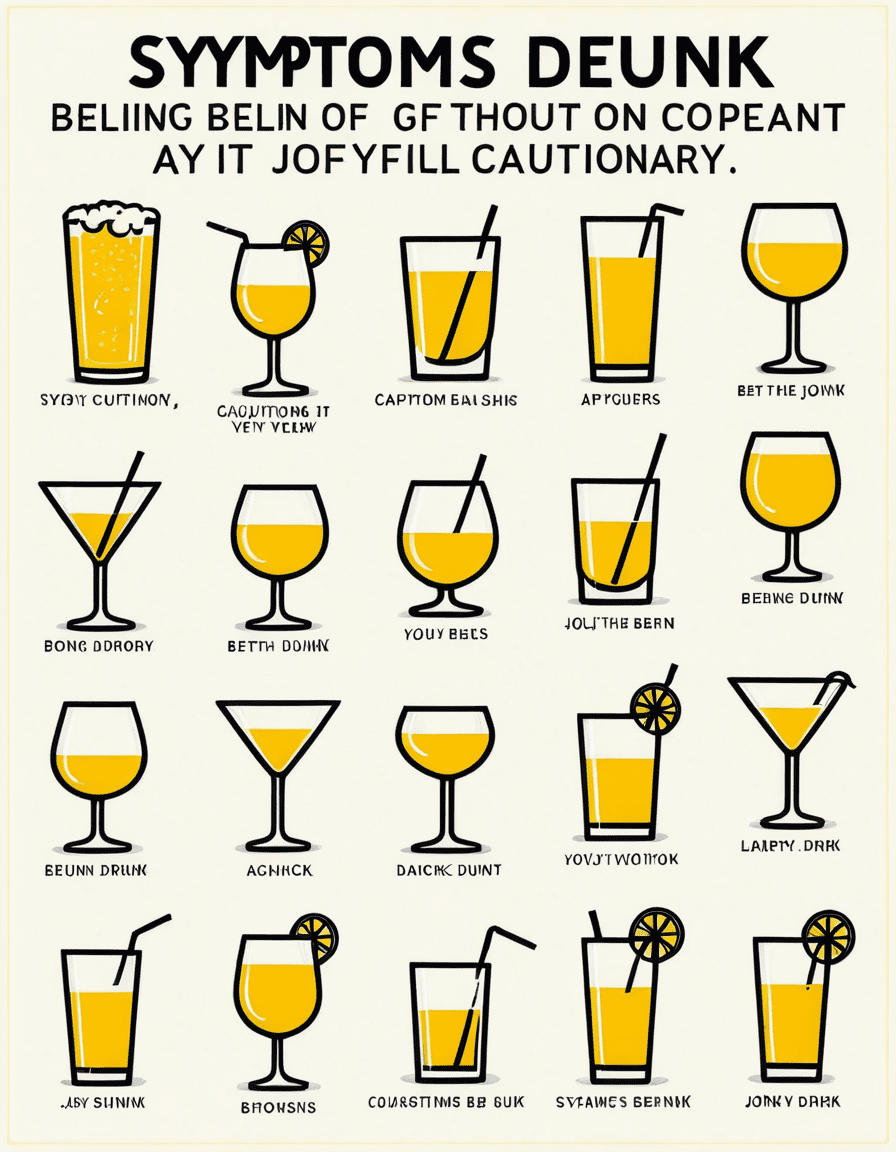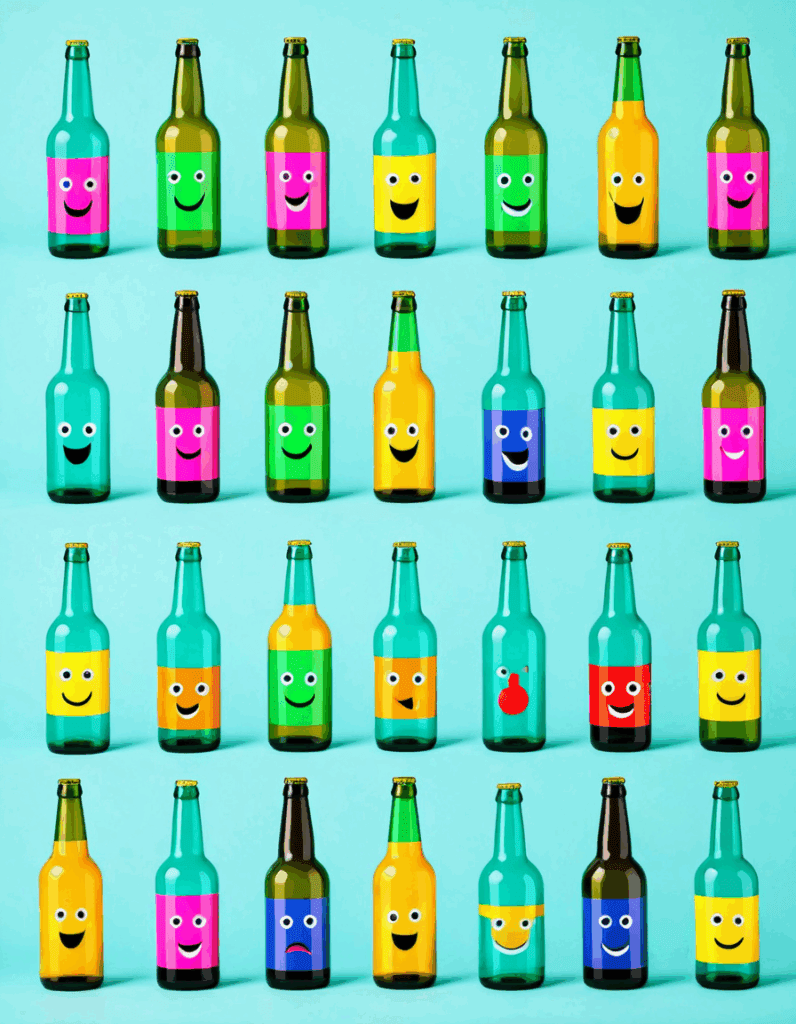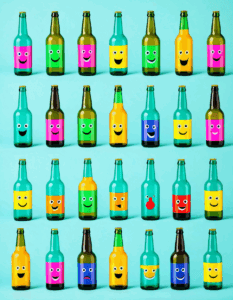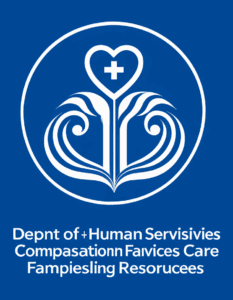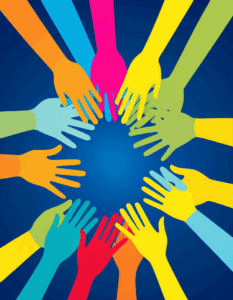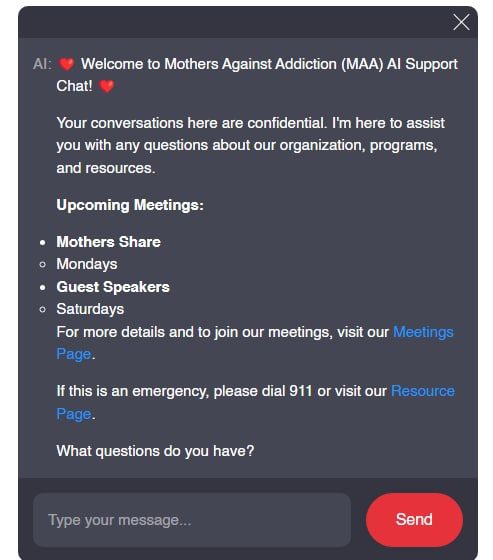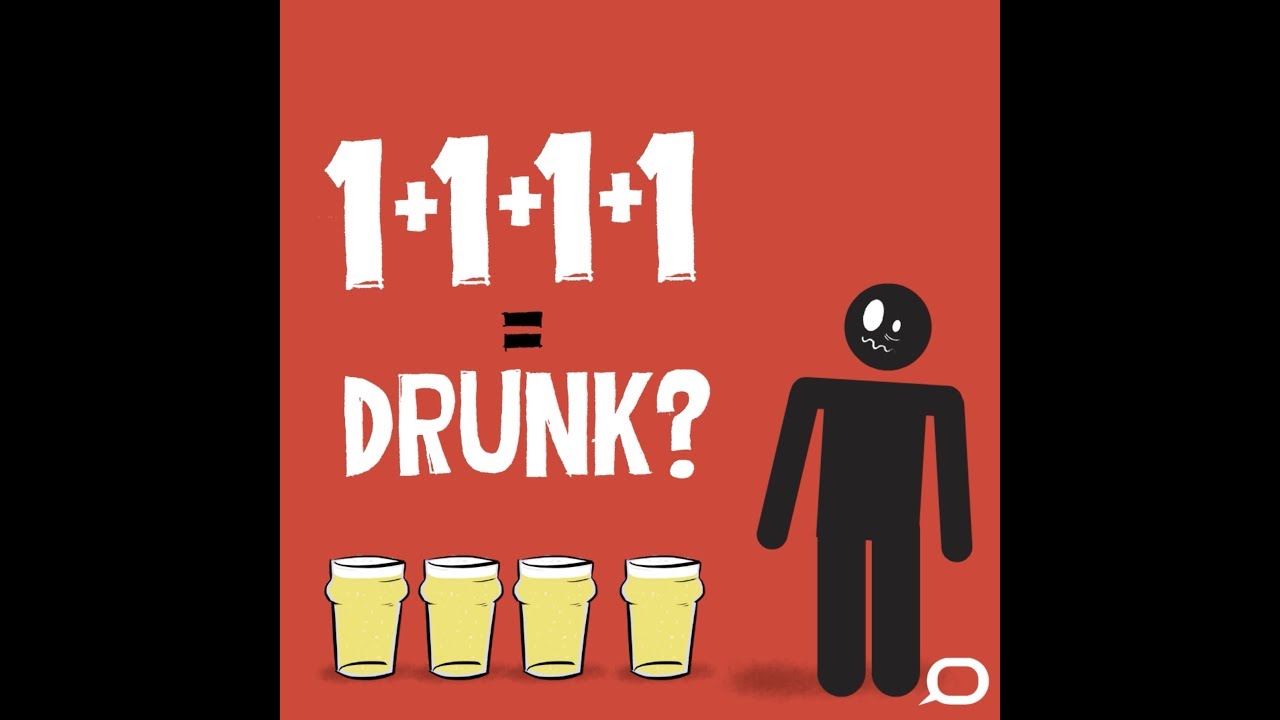
Understanding the Symptoms of Being Drunk
When we hear about the symptoms of being drunk, typical images pop into our minds: slurred speech, stumbling feet, and that familiar sense of joy that can sometimes tiptoe into chaos. But there’s much more beneath the surface. Alcohol consumption has far-reaching physiological and psychological consequences that are often surprising. By delving into these lesser-known symptoms, we not only raise awareness about addiction but also help walk alongside families affected by it. For many parents watching their children struggle, understanding these subtle signals can provide the clarity they need.

1. Altered Perception of Time and Space
One of the most unexpected symptoms of being drunk is the distortion in how we perceive time and space. Have you ever noticed how a night can slip away without a trace? Many people report that while under the influence, time either stretches or races ahead. This warped reality might seem harmless, but it can lead to dangerously poor decisions. Parents of children grappling with addiction should be aware that such moments can provoke reckless behavior. An innocent evening out can quickly become a spiral into trouble when someone loses track of time.
2. Emotional Volatility
While drinking might often be pictured as a path to laughter and good vibes, emotional volatility brings a more serious side. Alcohol acts as a magnifying glass for feelings, amplifying them beyond normal levels. Picture this: a light-hearted toast can flip into tears of sorrow or a burst of anger over past grievances. For some individuals, this emotional instability might serve as a sign of addiction, revealing how closely drinking is tied to underlying mental health challenges. It’s essential to acknowledge this behavior, as it may be a warning flag, not just for the drinker but for their loved ones as well.
3. Physical Coordination Challenges
Clumsiness typically brings to mind comedic scenes, but the physical coordination challenges resulting from intoxication can be severe and far more dangerous. Tasks we often take for granted, like texting a friend or pouring a drink, transform into frustrating puzzles. When alcohol inhibits motor skills, the chances of accidents soar. Parents often don’t realize how alcohol impacts their children, leading to injuries that may not seem immediately obvious. It’s vital for families to recognize these signs, as they can help prevent misunderstandings about the true nature of alcohol’s effects.
4. Cognitive Impairment
Imagine feeling on top of the world after a drink but then later realizing your judgment was more wobbly than your walk. Cognitive impairment ranks among the shocking symptoms of being drunk. Alcohol messes with the prefrontal cortex—the brain’s command center for decision-making. The lapse in critical thinking might seem trivial at the moment but can lead to regrettable choices. It’s essential for parents to engage in open dialogues about the signs and symptoms of addictions, ensuring youth understand these risks before diving into situations where the effects of alcohol can blind them.
5. Unexpected Sensory Experiences
A night out can quickly change when unexpected sensory experiences kick in. Some individuals find themselves suddenly sensitive to light and sound when they’re drunk. Think about a crowded bar where laughter feels like an overwhelming roar. For those battling conditions like attention deficit disorder, being in such high-stimulation environments can lead to panic or anxiety. Parents should consider how alcohol can compound existing issues, potentially making recovery from addiction more difficult for many young adults.
6. Symptoms of Withdrawal from Alcohol
For frequent drinkers, the symptoms of being drunk often intertwine with signs of withdrawal. For those attempting to cut back, symptoms like shaking, sweating, and irritability creep in shortly after drinking stops. This cycle creates a highly troubling pattern where individuals consume more alcohol to avoid these unpleasant feelings. Parents facing such situations might find it harrowing to watch as their child struggles against the gravity of addiction. Being educated about these withdrawal symptoms will empower parents to seek the help they need when the moment arises.
7. Signs of Addiction
Recognizing the signs of addiction can often be nuanced. When drinking becomes interwoven with daily routines—like needing a drink at social functions or indulging in alcohol alone—these are indicators parents must address. Engaging in risky behaviors such as drinking games or mixing alcohol with other substances can signal an escalating problem. Society often brushes these behaviors aside, missing the gravity of these red flags. By informing parents about these considerations, we can foster awareness and prompt proactive interventions when needed.

Moving Beyond the Symptoms of Addiction
Understanding symptoms is just the beginning. It’s crucial to also consider the broader implications of addiction. The interplay between physical and emotional symptoms creates a cycle that is challenging to break. Families torn apart by addiction need support, and recognizing these surprising symptoms equips them with knowledge. For parents, navigating these waters can feel overwhelming, but they aren’t alone in this battle. There are resources available to offer clarity and connection.

Shifting Perspectives on Alcohol Use
Rethinking our approach to alcohol is a significant step. Society tends to romanticize drinking, often portraying it as merely a social activity. Yet, as the symptoms of being drunk make clear, the dangers involved are manifold. By having open conversations about addiction and its symptoms, we can promote healthier relationships with alcohol. Shifting this narrative can contribute to prevention efforts, illustrating that awareness is a powerful tool against addiction. After all, understanding the far-reaching impacts of alcohol on individuals allows families to make informed decisions for themselves and their loved ones.
In conclusion, it’s vital to remember that the journey through addiction is incredibly personal, marked by both struggles and victories. For those momentarily embraced by the intoxication of alcohol, those nuances matter. Being educated helps families understand and confront the realities of addiction effectively, fostering a compassionate community for all. If you’re seeking guidance, whether for yourself or a loved one, do not hesitate to reach out to organizations like Mothers Against Addiction, dedicated to helping parents navigate these turbulent waters.

Symptoms of Being Drunk That Shock and Surprise You
The Unexpected Side Effects
When folks think about the symptoms of being drunk, they usually picture slurred speech and stumbling walks. But there’s a lot more to it! Did you know that high alcohol levels can impair your judgment, making you feel invincible? You might find yourself belting out karaoke tunes, convinced you’re the next big star! But hey, be careful with those high levels—check out What alcohol level can lead to serious health risks. It’s a slippery slope.
Interestingly enough, the effects don’t stop there. Many people also experience blurred vision and a slowed reaction time, resembling the effects of other substances like opiate Drugs. Surprising, right? To put it in perspective, just like how the psilocin Shrooms affect perception, alcohol can mess with how you see the world. Keeping an eye on these symptoms could save you from an embarrassing night!
The Social Ramifications
The social symptoms of being drunk can be just as shocking. Ever found yourself in a chatty mood, spilling secrets you swore you’d keep? That’s the alcohol talking! In fact, some people might even find themselves getting overly affectionate or argumentative—talk about a rollercoaster of emotions! Such behaviors are often fueled by a combination of alcohol and high stress, much like the pressure faced by people like Sean Burroughs and Molly Stewart in their careers.
Additionally, those blurry lines between fun and risky behavior may catch you off guard. Think about it: in one moment, you’re dancing with friends and in the next, you might misjudge someone’s feelings or intentions. That’s not just the booze; it’s about understanding how alcohol can play tricks on your mind. So next time you’re out, remember that the symptoms of being drunk can turn a good time into a night you’d rather forget.
In summary, the symptoms of being drunk are often unexpected, ranging from physical impairments to significant social changes. Stay informed and enjoy responsibly!
